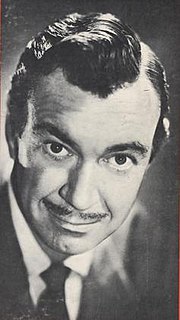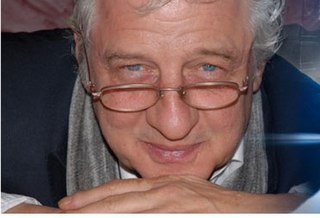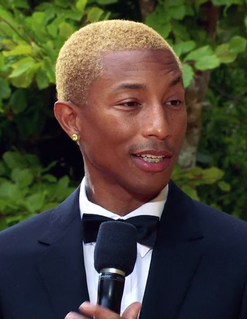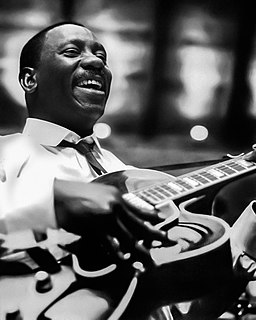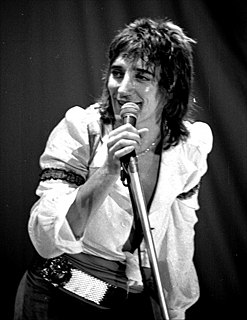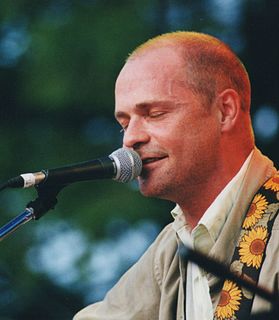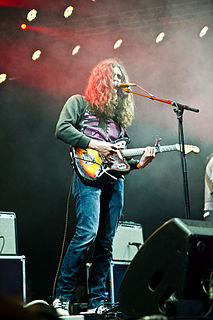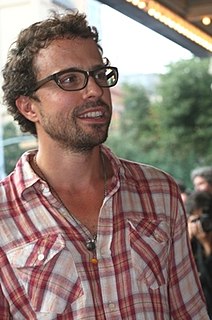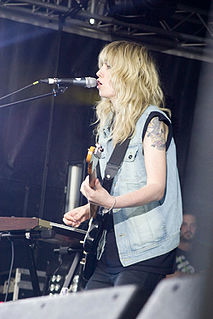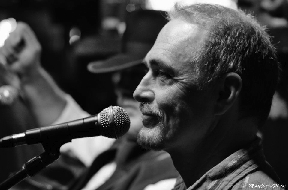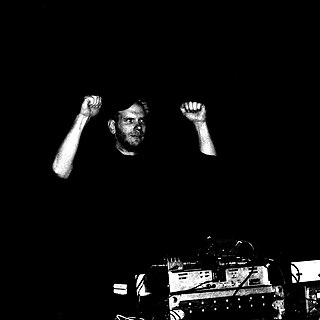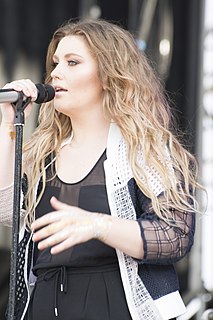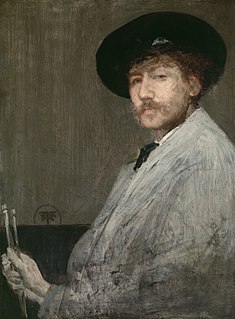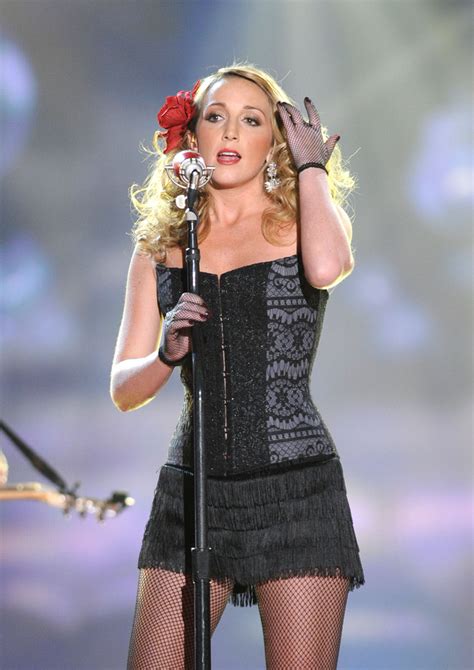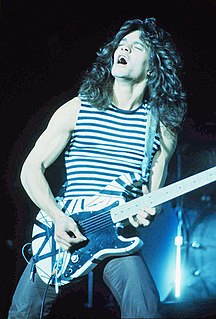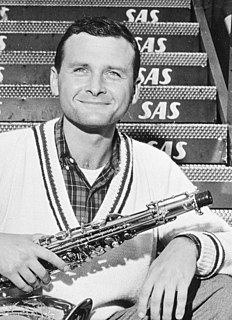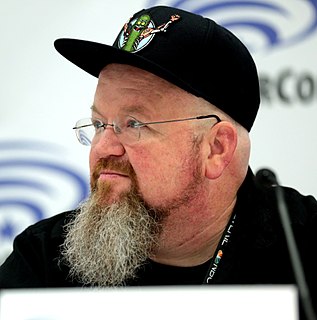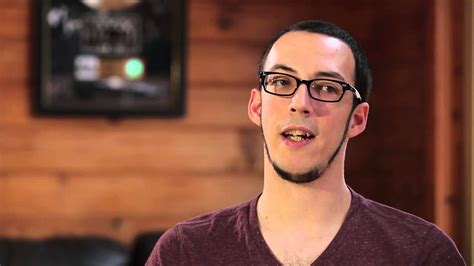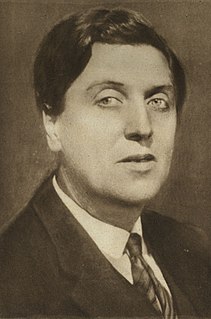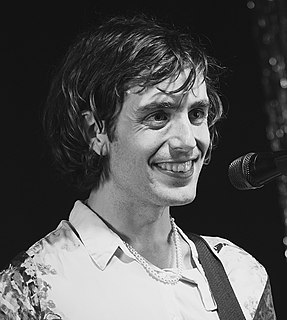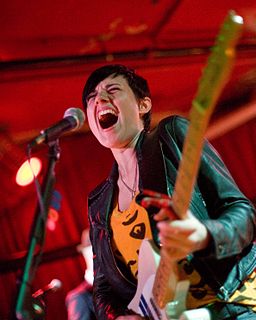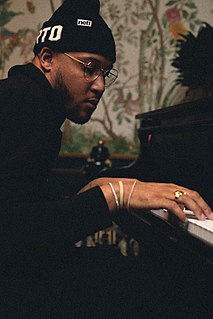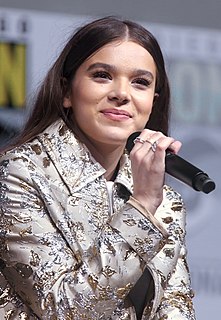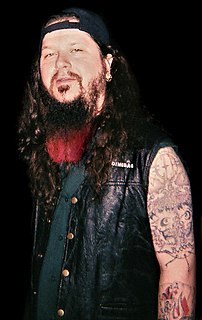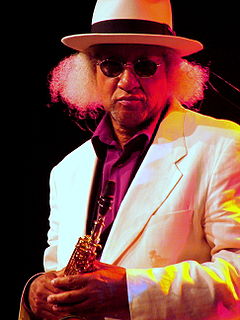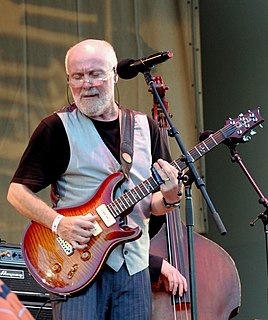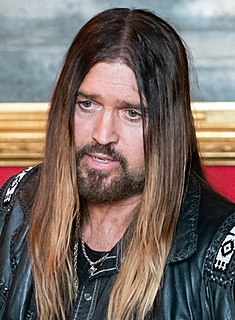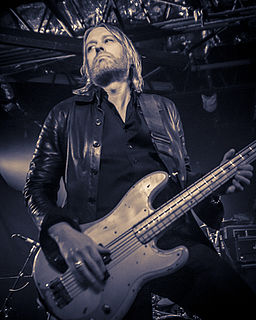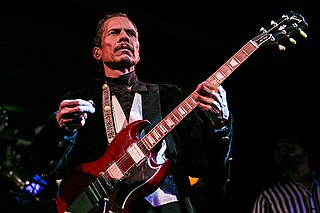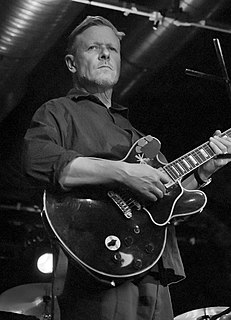Top 420 Chords Quotes & Sayings - Page 7
Explore popular Chords quotes.
Last updated on April 16, 2025.
If you deny yourself access to the child within because you're too serious, you also block your connection to the divine Light and your feminine self. Every creator who's any good uses their feminine side to create with.. Whether a scientist working on a hunch, a painter working on the interplay of colors, or a musician dealing with the juxtaposition of notes and chords.
I think there are lots of things that people think are so different but they're not. People think there is a huge difference between hip hop and country music, but there is really not when you start looking into themes and what people are struggling with or celebrating. When you break it down to the chords and the beats it is all the same. Personally, I am obsessed with music as it is a limitless tunnel that you can explore.
I think minimalism is something I just got attracted to just in general because I like the empty space, if you think about it, like there's a lot of empty space. So there are sounds there, there are chords, like coordinates, to sort of tell you where the emotion is going, but then it leaves so much room for the voice to do other things.
There are people who are really great musicians. I've met a lot of them. And I'm not a great musician. I'm adequate enough to be able to throw some chords together and write songs, but I can only feel that because I'm expressing something honestly, or in a heartfelt way, or in some way that's not bullshit, that in some way the songs have merit.
Playing octaves was just a coincidence. And it's still such a challenge, like chord versions, block chords like cats play on piano. There are a lot of things that can be done with it, but each is a field of its own. I used to have headaches every time I played octaves, because it was extra strain, but the minute I'd quit I'd be all right. But now I don't have headaches when I play octaves.
There seemed to be a sense about Sarah [Harmer] even back then.She was obviously a quick study. I remember going to the Harmer farmhouse and sitting around the pool, and Sarah had a guitar. Maybe I knew four chords, but she already knew five. After doing 600 gigs that week, I would sing with her in a ragged voice, and she had the voice of a bird.
My family was always playing music; I always enjoyed it. My cousin, who is a little older than me, he started playing music, so I wanted to, also. I asked my dad for a guitar, and he got me a banjo, so that was my introduction to playing. I played it like a guitar. I had a few lessons, learned out a few chords, and figured it out right away.
"Playing" the resources of characterology for the sake of clarification and insight into the structures of actual existence is many times more daunting than playing a piano; it requires the thinking of chords of thoughts, not just isolated simplisms or abstracta; it demands the shaping or encompassing of morphological modes of intelligence that can comprehend gestalten, syndromes, historical and civilizational patterns in which it is not the particulars but their interactive significance (as an ensemble of actualities or principles) that is vital.
We ought to give our friend pain if it will benefit him, but not to the extent of breaking off our friendship; but just as we make use of some biting medicine that will save and preserve the life of the patient. And so the friend, like a musician, in bringing about an improvement to what is good and expedient, sometimes slackens the chords, sometimes tightens them, and is often pleasant, but always useful.
I remember writing a song when I was about 15. This is the one I can remember. I know I'd been writing poetry for a long time, since I was about eight, but I remember my first one that I put to chords. I was really trying to be like the psychedelic era Beatles, I was obsessed. All I could think about was Beatles and Hendrix. So I tried to write a psychedelic song, and it was the worst. I couldn't even... If I read it now - I still have the book somewhere - it makes me cringe out loud. It was just about psychedelic stuff.
Pete Townsend for me was a huge influence. Because essentially they were a three-piece band and the way he structured his chords and took up a lot of space musically in the songs was really important to the way Rush developed. Geddy and Neil both were such active players and lot of the time we were all playing like crazy and it was too much and somebody had to reel it in and me being the faceless guy, I would do that.
Then about 12 years ago it dawned on me that folk music - the music of Woody Guthrie and Phil Ochs, early Bob Dylan, Johnny Cash, Pete Seeger - could be as heavy as anything that comes through a Marshall stack. The combination of three chords and the right lyrical couplet can be as heavy as anything in the Metallica catalogue.
The healing power of music is vast. Music therapy is in its infancy in Western psychology. If we knew more, we'd be able to do amazing things, and maybe even make permanent changes in the brain's mysterious workings. With a simple song and four chords, you might be able to do something useful, even life-changing. With all the songs you know, you might be a virtual, veritable medicine chest for the right person.
When I came to the United States in 1975 I was eleven, and within a few months my voice broke. I recited commercials like a parrot and I got yelled at quite often. My older brother one night said, "You speak so much English when you're not supposed to, that's why your vocal chords shattered. Now you sound like a duck." I thought it was true. I went from this sweet-voiced Vietnamese kid who spoke Vietnamese and French to this craggy-voiced teenager.
My sweet rose, my delicate flower, my lily of lilies, it is perhaps in prison that I am going to test the power of love. I am going to see if I cannot make the bitter warders sweet by the intensity of the love I bear you. I have had moments when I thought it would be wise to separate. Ah! Moments of weakness and madness! Now I see that would have mutilated my life, ruined my art, broken the musical chords which make a perfect soul. Even covered with mud I shall praise you, from the deepest abysses I shall cry to you. In my solitude you will be with me.
For some reason, I deliberately allow for simple things like three chords to mystify me. It's kind of fun that way. Like Billy Gibbons' guitar sound isn't the way it is because he uses a quarter as a pick or anything as simple as that; it's because he's in touch with a different sector of the cosmos that we know nothing about.
I knew from the start that I wanted my life to be about music. I taught myself the notes of the piano aged three, and then I spent the next few years deconstructing chords to figure out how to play them. At 11, I researched online the sort of music school I wanted to attend, printed out the details, and handed them to my parents.
I envy the music lovers hear. I see them walking hand in hand, standing close to each other in a queue at a theater or subway station, heads touching while they sit on a park bench, and I ache to hear the song that plays between them: The stirring chords of romance's first bloom, the stately airs that whisper between a couple long in love. You can see it in the way they look at each other... you can almost hear it. Almost, but not quite, because the music belongs to them and all you can have of it is a vague echo that rises up from the bittersweet murmur and shuffle of your own memories.
I was classically trained. But more than just the fact that I play violin, there's a lot of classical elements in the way I write, in the way I hear chords. A lot of times, I think of my songs as a symphony made out of electronics rather than instruments. And I love to do orchestral arrangements of my songs after they're done.
Nature contains the elements, in colour and form, of all pictures, as the keyboard contains the notes of all music. But the artists is born to pick, and choose, and group with science, these elements, that the result may be beautiful - as the musician gathers his notes, and forms his chords, until he brings forth from chaos glorious harmony
Most beginners want to learn lead because they think it's cool .. consequently, they never really develop good rhythm skills .. since most of a rock guitarists time is spent playing rhythm, it's important to learn to do it well .. learning lead should come after you can play solid backup and have the sound of the chords in your head
Songs are like movies to me, and so you put yourself in the movie. You become a character in the movie. The new ones are exciting because they're fresh. But if it's not that, if the story is not what you get into, maybe it's the crowd response. You hit the first chords of 'She's In Love With The Boy' and 20,000 people start to scream, you're pretty motivated. You get what you need. And it's a great story. It works.
It’s like a language. You learn the alphabet, which are the scales. You learn sentences, which are the chords. And then you talk extemporaneously with the horn. It’s a wonderful thing to speak extemporaneously, which is something I’ve never gotten the hang of. But musically I love to talk just off the top of my head. And that’s what jazz music is all about.
-“Say no more,” Leif interrupted. “I understand. I will simply have to kill them all myself.” -"There he goes again. I’m telling you, Danny Elfman would love to get hold of those lines." -"Not John Williams?" -"If you’ve got some hopelessly overmatched heroes fighting evil and some Imperial types marching, John Williams is your guy. You need a song to make people reach for a box of Kleenex, talk to Randy Newman. But if you want creepy atmospherics and spine-shivering chords to back up your casual death threats, you gotta bring in Danny Elfman.
I'm taking drama classes, they say I'm a natural actress. I think it's just because I talk a lot. I'm also learning how to play guitar and piano. Piano is really hard though. My dad is teaching me and I just get so confused because the chords are so different, but by learning I hope to be able to be a songwriter as well.
Not only do you need great lyrics, a great message, a great story, great vocals, great chords... you also need great instrumentation, great editing, great sonics, great mixing, and great mastering. It all comes together to make something truly great, and I think each element combines together to create a powerful impact on the consumer.
Love--what a volume in a word, an ocean in a tear, A seventh heaven in a glance, a whirlwind in a sigh, The lightning in a touch, a millennium in a moment, What concentrated joy or woe in blest or blighted love! For it is that native poetry springing up indigenous to Mind, The heart's own-country music thrilling all its chords, The story without an end that angels throng to hear, The word, the king of words, carved on Jehovah's heart!
I think the origin of all this clamour for tonality is not so much the need to sense a relationship to the tonic, as a need for familiar chords: let us be frank and say "for the triad"; and I believe I have good reason to say that just so long as a certain kind of music contains enough such triads, it causes no offence, even if in other ways it most violently clashes with the sacred laws of tonality.
I usually start with a guitar riff or some little pattern of chords, and then I kind of go from there. Usually my lyrics are the last thing to go onto a song. For years and years I only ever did instrumental, so I'm still trying to get confidant with my lyrics and find the right balance. I'll generally get inspired from the music. I'll have a guitar line, and then I'll have a melody line, and I hook the lyrics up to fit that rhythm. So, my lyrics to tend be very rhythmic as well. They work with the music rather than the music works around them.
When I first starting making beats, I didn't know samples were being used in any beats. I had no idea where producers were getting the real string sounds or the voices on their tracks. I knew nothing about loops or sampling off of records. So, by me knowing nothing about this it made me concentrate on my chords on the keyboard.
Will none of the powers that be realize what Brian Wilson did with the chords. Deftly taking from all sources, old rock, Four Freshman, he got in his records a beautiful hybrid sound - Let Him Run Wild, Don't Worry Baby, I Get Around, Fun, Fun, Fun - 'and she had fun, fun, fun 'till her daddy took her T-bird away.'
Let no one pray that they know not sorrow,
Let no soul ask to be free from pain,
For the gall of to-day is the sweet of to-morrow,
And the moment's loss is the lifetime's gain.
Through want of a thing does its worth redouble,
Through hunger's pangs does the feast content,
And only the heart that has harboured trouble
Can fully rejoice when joy is sent.
Let no one shrink from the bitter tonics
Of grief, and yearning, and need, and strife,
For the rarest chords in the soul's harmonics
Are found in the minor strains of life.
When I'm playing music I'm usually not thinking of surfing, just because I'm usually thinking about the chords and the lyrics, and sometimes that messes me up 'cause you'll start thinking, "Wait, how am I doing this?" But when I'm surfing, I'm usually thinking about music - whether it's an idea for a new song, or just singing a song in my head.
I could be inspired by something I see or something I hear and write down or send to a friend or a writer or whether I have instrumental tracks or just a couple chords recorded on my phone. If I have a couple sessions set, I'll go into the studio with the people I'm lucky enough to call my friends because I feel like I can talk to them and then suddenly our conversations turn into these songs you hear on the radio. I still don't understand how it happens but I talk about my experiences and my situations and everything and then they turn into these amazing pop songs.
I didn't write any music at all, and then, I remember Jon Anderson being very insistent saying that there were two kinds of musicians: the ones who wrote music and the ones who didn't. And clearly the ones who wrote music were more superior human beings in his mind. So he kind of nudged me and sort of prodded me into it. I picked it up slowly. Then I learned more about chords and harmony and I just kept adding to that. One of the great things about having good players in your band is that you just ask them questions. You can pick up some good information that way.
There was this big skiffle craze happening for a while in England.... Everybody was in a skiffle group..All you needed was an acoustic Guitar, a washboard with thimbles for percussion, and a tea-chest- you know, the ones they used to ship tea from India- and you just put a broom handle on it and a bit of string, and you had a bass..you only needed two chords; Jing-jinga-jing jing-jinga-jing jing-jinga-jing jing-jinga-jing. And I think that's basically where i've always been at. I'm just a skiffler, you know. Now I do posh skiffle, that's all it is.
Sometimes an idea from six years ago will come to me out of the blue. And maybe I haven't even seen the lyrics I wrote down, but I'll just have this physical memory of having written it, and in my mind I can see the piece of paper, and the words I wrote down, and then by muscle memory, I'll remember the chords that go along with it.
...every once in a while it seems like the cosmos part and something great plops into your lap, that's how it was with "Hotel California".. a leased beach house in Malibu ... all the doors wide open on a spectacular July day probably in 1975 ... soaking wet ... thinking the world is a wonderful place to be... with an acoustic 12 string ... those chords just oozed out.
Initially, I just used the guitar as a prop. I'd pose with it in front of a mirror in my Kiss makeup when I was skipping school. Then I figured out how to play the main riff to Deep Purple's 'Smoke on the Water' on just the E string. Next, my old man showed me how to play barre chords, and that's when things started getting really heavy.
I don't think my playing style has really changed over the years; it's just gotten better. I can hear the improvement in comparing older records and later records. I'm referring to soloing ability, to having a better sound, to knowing chords better, and getting rhythmically stronger. It also has to do with ideas - learning how to edit your ideas and being better able to follow ideas out to a logical conclusion.
Apropos, is not the Scotch phrase 'Auld Lang Syne' exceedingly expressive? I shall give you the verses on the other sheet. The words of 'Auld Lang Syne' are good, but the music is an old air, the rudiments of the modern tune of that name. ... Dare to be honest and fear no labor. ... Opera is where a man gets stabbed in the back, and instead of dying, he sings. ... Chords that vibrate sweetest pleasure thrill the deepest notes of woe. ... Critics! Those cut-throat bandits in the paths of fame.
School of Rock. The best music school anywhere. This whole idea of getting kids not just taking lessons and learning notes and chords, but learning songs and playing with other young musicians, and getting out on stage... I was so impressed that my daughter Cheyenne goes to School of Rock on Long Island.
I don't know that many chords. I'd be loaded if I knew that many. But that's not my aim. My aim is to move from one vein to the other without any trouble. The biggest thing to me is keeping a feeling, regardless what you play. So many cats lose their feeling at various times, not through the whole tune, but at various times, and it causes them to have to build up and drop down, and you can feel it.
My kids learned to color on this table. There's been a lot that's went around this table. Waylon Jennings sat right there in that chair and showed Miley the chords to 'Good Hearted Woman.' Sitting in that chair. This table's a bit like life. It's a circle. And I believe everything in life is a circle. You come into this world a little teeny wrinkled-up fetus
Wherever inspiration comes from, it's like I'll hear a melody and chords, almost a rough structure of the whole thing [song]. I'll just hear it and chase what's in my head. The rest comes from jamming with band, improvising, seeing what comes up as well. I'll come up with it off the top of my head, catch it, sing and hum, and if something is missing, just jam, and that's the [songwriting] process.
Sometimes I'll hear some music in my head or I'll go to the piano and mess around and come up with a tune, or be on the guitar and come up with some chords - or I'll come up with lines, or just some words, or just a sentence. It could be the title of a song. I do that all the time. I write titles of songs a lot. And sometimes I'll end up writing a song that I don't have a title for and I'll say, "Oh, this goes with that title".
Past dreams of bliss our lives contain, And slight the chords that still retain A heart estranged to joys again, To scenes by memory's silver chain Close-linked, and ever yet apart, That like the vine, whose tendrils young Around some fostering branch have clung, Grown with its growth, as tho' it sprung From one united heart.
For me, the tabletop is an easy way to eliminate the possibilities of chords, modes, melodies, and harmonies. It kind of confines you to this other sound sphere. I know anyone facing this kind of dilemma could always just find another instrument more suitable to their needs, such as a sampler or synthesizer, but I figured I have a guitar and amp so why not just use them?
I like loud electric guitars because I like how you can just lose your entire being in the sound. But I can't find myself in a situation where our band Swans is doing typical chord progressions - it just seems cliché to me. Even changing chords sounds like a cliché sometimes, though it happens occasionally in our music. But you find ways to push yourself into the sound through repetition. It doesn't stay the same. It morphs constantly.
Books! The chosen depositories of the thoughts, the opinions, and the aspirations of mighty intellects; like wondrous mirrors that have caught and fixed bright images of souls that have passed away; like magic lyres, whose masters have bequeathed them to the world, and which yet, of themselves, ring with unforgotten music, while the hands that touched their chords have crumbled into dust. Books! they are the embodiments and manifestations of departed minds--the living organs through which those who are dead yet speak to us.
